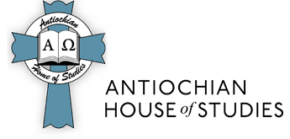The Orthodox Academic Society convened its fourth biannual symposium yesterday, January 27th, under the auspices of Antiochian House of Studies, marking the Winter 2024 Symposium. The program for this scholarly gathering has been officially released, encompassing a series of intellectually stimulating sessions delivered by esteemed speakers.

Following the prayer, the symposium was officially inaugurated with an opening speech delivered by Fr. Michel Najim, the President of Antiochian House of Studies (AHOS). Fr. Najim eloquently addressed the significance of the symposium, emphasizing its pivotal role in fostering scholarly discussions and promoting a deeper understanding of Orthodox theology.

Continuing the opening session, Fr. Fadi Rabbat, the Dean of AHOS, shared insightful thoughts on the importance of the symposium in advancing academic pursuits within the Orthodox community. His speech highlighted the value of intellectual exchange and the role of AHOS in nurturing an environment that encourages academic growth.

Under coordination of Dn. Simeon Spencer, the speakers started to present their researches. Among the distinguished presenters is Peter Lee, a Ph.D. student, who presented a paper titled “The Symbolic Unity of Theurgia and Hierurgia in the Dionysian Liturgy.” His presentation delves into an analysis of Dionysius’ commentary on the liturgy and the Eucharist under the Syriac notion of symbol.


Following this, R. Joseph Bussard, another Ph.D. student, presented a paper titled “St. Gregory the Sinaite: A 14th Century Mystagogue and True Teacher on the Incarnation of Christ The Word – Θεού Λόγος in the Human Heart of Man.” This presentation explored the theological synthesis found in St. Gregory, uniting deep Christian mysteries into an approachable understanding.
The program continues with Nicholas Szabo, a Ph.D. student, who discussed “Who Am I and How Should I Live? Christianity in Twenty Words.” His presentation focused on delivering the Orthodox Christian message quickly and succinctly to diverse demographics, drawing inspiration from work in a homeless shelter.
Other notable presentations include Maximus Sauskojus, an MTS Graduate, exploring “The Orthodox Church’s Approach to Mental Health,” and talked about how the Orthodox Christian life addresses the interrelationship between mental and spiritual health. after that Kathleen McKinnon, an MPCC Student, examined “Healing in the Family: The Ethics of Becoming a Healing Presence to Your Relatives.” explained ethical issues that arise when caring for members of one’s family.
Additionally, Br. John-Marmion Villa, an MPCC Student, presented on “Forming Monks and Fostering Fraternity in the Rule of St. Benedict,” discussing the application of ancient wisdom in modern contexts to improve the vibrancy of monastic communities.
The symposium culminated with Laura Wilson, a Ph.D. Candidate, presenting “The ‘Priestly Schema of the Diaconate’ in the Vitae of St. Domnika.” This presentation involves an in-depth analysis of the theological meaning of the ordination of deaconesses in the Constantinopolitan tradition through the hagiography of St. Domnika.
Main OAS website: oas.ahos.edu
Following are some screen shots of the symposium;




